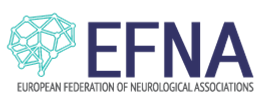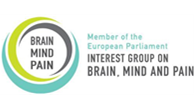On 15 June 2021, the MEP Interest Group on Brain, Mind and Pain organised a virtual working session. The event’s main objective was to understand the long-term impact of the Covid-19 outbreak on different population groups affected by BMP disorders, and to define and frame the inequalities and challenges they experience. The working session was attended by EU policy-makers, healthcare professionals, patient organisations and industry representatives.
Attendees were welcomed by Ms Joke Jaarsma, President of the European Federation of Neurological Associations (EFNA). Ms Jaarsma highlighted in her opening remarks that the
Covid-19 pandemic has further strained health inequalities within the EU and its Member States, impacting deeply people living with BMP disorders. She also underlined the need to urgently address these inequalities, touching upon the complexities of healthcare disparities and the required political commitments.
Mr Joop van Griensven, President of Pain Alliance Europe (PAE) discussed, the impact of Covid-19 on BMP patients and vulnerable groups, highlighting that
the aftermath of the pandemic will be a critical point in ensuring that those living with life-limiting conditions are not socially excluded and are meaningfully involved in all policy discussions.
Ms Donna Walsh, Executive Director of EFNA and Ms Deirdre Ryan, Presidential Candidate of PAE presented the results of two recent surveys that looked at the impact of Covid-19 on those living with neurological and chronic pain in Europe. The two surveys had similar findings, with almost 45% neurological patients and 48% chronic pain patients experiencing difficulties in receiving appropriate care during the pandemic. Based on these and other results in the surveys, EFNA and PAE presented their key conclusions and recommendations to policy-makers.
After the initial presentations, the audience was provided with the EU institutional perspective by Ms Katarzyna Ptak-Bufkens from the European Commission and the Interest Group’s co-chair, MEP Tilly Metz (Greens / EFA, Luxembourg). Ms Ptak-Bufkens referenced some of the Commission’
s ongoing complementary policy tools to address health inequalities, including the European Pillar of Social Rights and Action Plan, and the Health Systems Performance Assessment (HSPA), highlighting that a ‘one size fits all’ solution is impractical and that tools should serve the national and subnational context and help those most vulnerable. MEP Metz welcomed Ms Ptak-Bufkens’ remarks while strongly emphasising the importance of putting non-communicable and chronic diseases, such as BMP disorders, at the forefront of future-proofing and building resiliency of European healthcare systems.
Following the opening plenary, three parallel workshops allowed for a more interactive discussion on the Interest Group’s core themes: stigma, access and patient empowerment.
Through this exercise of gathering insights from different players in the healthcare arena and promoting a co-decision approach, the challenges experienced by people with BMP disorders were better framed, and this will ultimately contribute to identifying more person-centred solutions.
#1: “Covid-19 and the future of ageing: intergenerational connections” (stigma, discrimination and isolation).
Participants in this workshop agreed that the most solvable challenge in the short term for ageing patients was the lack of public awareness of BMP disorders, highlighting that better information, including via improved digital literacy, could contribute to increased social inclusion.
#2: “Addressing acce
ss challenges and geographical disparities experienced by vulnerable groups across Europe” (access to treatment, services and support)
At the beginning of the workshop, Mr Stanimir Hasardzhiev, Secretary-General of the Patient Access Partnership (PACT), delivered a presentation on “Addressing access challenges and geographical disparities experienced by vulnerable groups across Europe”. access to healthcare.
During the workshop, participants discussed the geographical disparities and access challenges that people living with BMP disorders experience, and identified the lack of appropriate information on the disease and its management as the most solvable challenge in the short term. Participants have highlighted that in order to address this unmet need, no legislation changes are necessary. Moreover, patient organisations at national level can take the lead and ensure that patients have access to relevant information, thus supporting them in making informed decisions that will ultimately improve patient outcomes.
#3: “Empowering women with BMP disorders and carers in the aftermath of Covid-19” (patient empowerment)
Ms Peggy Maguire, Director General of the European Institute of Women’s Health, opened the workshop with a presentation on “Health Promoting Gender Equity in EU Health Policy”, and referenced figures and studies highlighting the gender gaps in BMP research in Europe, including women’s under-representation in clinical trials. Ms Maguire concluded her presentation by sharing a snapshot of recent policy developments on the topic.
Based on the identified challenges, the Interest Group will now look to assess how EU-level action can help to support the advancement of the priority issues iden
tified. Best practice interventions in the wider healthcare space will be sought via desk research and a call for solutions. Shortlisted solutions will be presented and discussed with key stakeholders at the next meeting of the Interest Group that will take place on 19 November, and will form the basis of the MEP Interest Group’s direction/workplan in 2022.
MEP Duda noted the importance of raising awareness of BMP disorders to reduce stigma and discrimination, highlighting the need to move towards increased health equity in a post-Covid world.
Before concluding the event, EFNA awarded Mr Joop van Griensven the Lifetime Achievement Award for his tireless work and support in raising awareness and improving the lives of those living with chronic pain.
Summary from EFNA’s Report on the meeting
Merete Avery
Operations Manager


